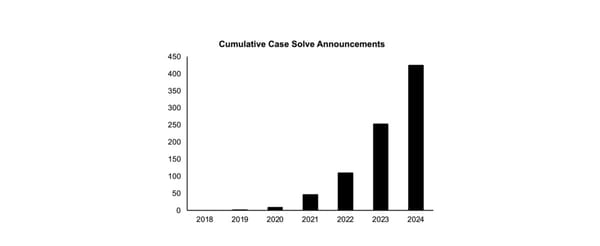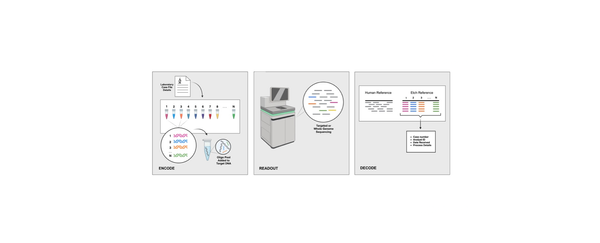Investigative leads are not generated by traditional forensic DNA testing, if the source of the forensic evidence or a 1st degree relative of unidentified human remains is not in the DNA database. In such cases, forensic genetic genealogy (FGG) can provide valuable leads. However, FGG generated genetic data contain private and sensitive information. Therefore, it is essential to deploy approaches that minimize unnecessary disclosure of these data to mitigate potential risks to individual privacy.
We recommend protective practices that need not impact effective reporting of relationship identifications. Examples include performing one-to-one comparisons of DNA profiles of third-party samples and evidence samples offline with an "air gap" to the internet and shielding the specific shared single nucleotide polymorphisms (SNP) states and locations by binning adjacent SNPs in forensic reports. Such approaches reduce risk of unwanted access to or reverse engineering of third-party individuals' genetic data and can give these donors greater confidence to support use of their DNA profiles in FGG investigation.






